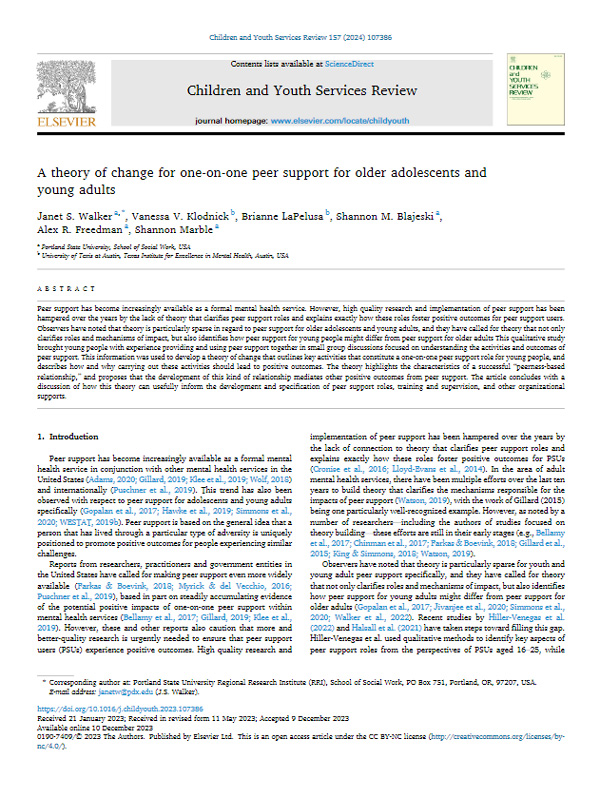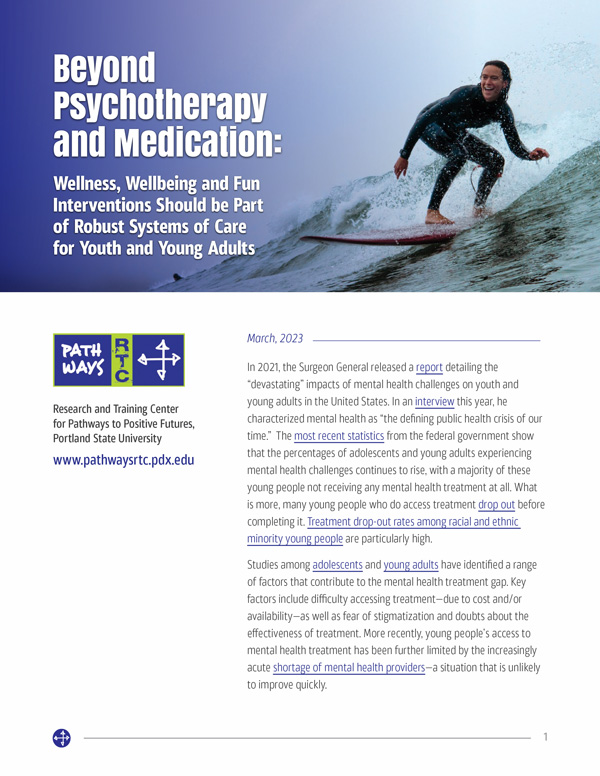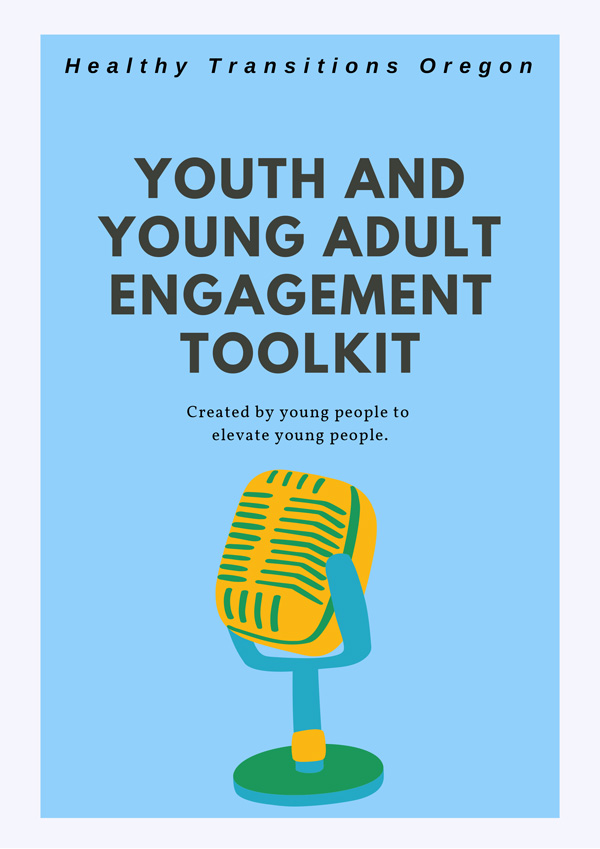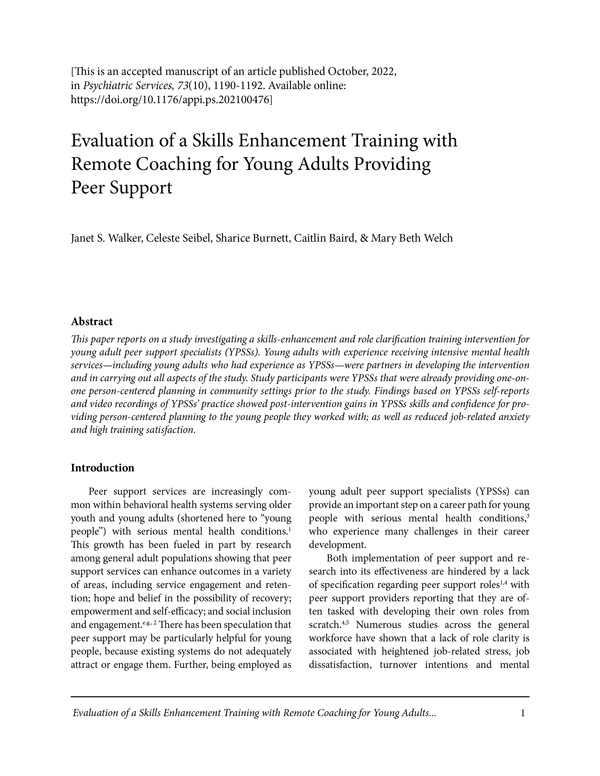Peer-Reviewed Article: A Theory of Change for One-on-One Peer Support for Older Adolescents and Young Adults
Posted
This article discusses qualitative data from a study of young people who provide and use peer support. The data was used to develop a theory of change that outlines key activities that constitute a one-on-one peer support role for young people, and describes how and why carrying out these activities should lead to positive outcomes.






